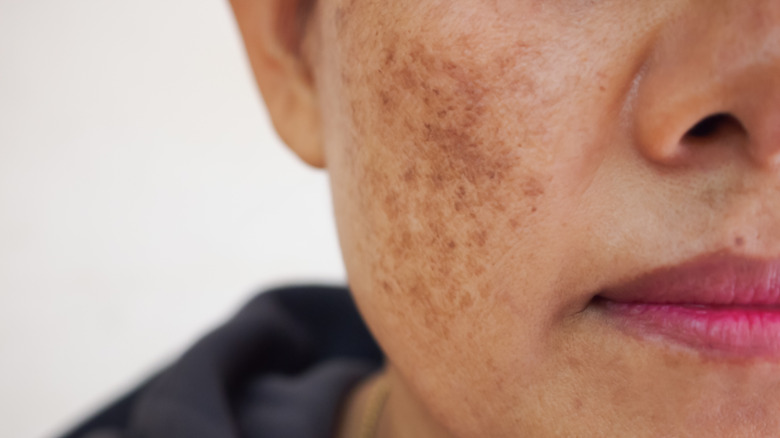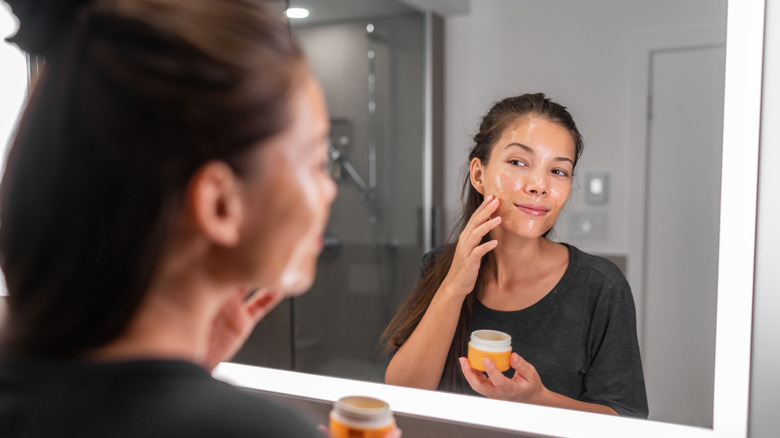Dermatologist Reveals 3 Products She Swears By For Dark Spots
Hyperpigmentation is nothing that a little concealer can't fix. If you're looking for a permanent change, however, you'll need to dip into some topical treatments. But which topical treatment is best? Which ingredients cause sensitivity? And what is hyperpigmentation, exactly?
According to the American Osteopathic College of Dermatology, hyperpigmentation is a harmless condition characterized by darkened patches of skin. These dark spots commonly appear on the face and hands and can be caused by acne scars, sun damage, or simply age. While the root cause of dark spots can alter the treatment method, there are several excellent ingredients that can gradually lighten any dark spot over time. We reached out to Dr. Dendy Engelman, board-certified dermatologic surgeon and RxSaver dermatologist, to get the scoop. As an expert in neurotoxins, skin cancer, and all things skincare, Dr. Engelman trusts three main products for hyperpigmentation: hydroquinone, azelaic acid, and glycolic acid.
The first product recommendation, hydroquinone, is a skin-bleaching agent that is often used to treat acne scars, age spots, melasma, and marks caused by psoriasis and eczema, via Healthline. "Age spots, dark spots, or sunspots respond well to hydroquinone," says Dr. Engelman. "Prescription-strength hydroquinone contains 4% hydroquinone, while over-the-counter contains 2% hydroquinone."
Choosing between hydroquinone, azelaic acid, and glycolic acid
If you're looking for a product that does double-duty, Dr. Engelman suggests a formula that combines hydroquinone with tretinoin. Per PubChem, tretinoin is a naturally occurring derivative of vitamin A, commonly known as retinol. "For a combination product for your face, Triluma is excellent, as the tretinoin in it enhances the penetration of the retinol. It also has a mild corticosteroid that helps with redness," Dr. Engleman says. Want a bonus? Dr. Engelman reports, "In some cases, a mild retinoid or hydroquinone may also help with dark circles under your eyes. But check with a dermatologist, to confirm that dark circles are caused by hyperpigmentation."
As Healthline points out, hydroquinone may not be for you if your skin is dry or sensitive. In this case, azelaic acid would be a great alternative. This ingredient is gentler on the skin, though Admire My Skin notes that the concentration of azelaic acid in a product would need to be much higher than that of hydroquinone to treat hyperpigmentation.
Lastly, Dr. Engelman recommends glycolic acid. Derived from sugar cane, it works to exfoliate the skin and increase cell turnover, which can help lessen the appearance of dark spots (via Verywell Health). "There are wonderful OTC products, such as LaRoche Posay Glycolic B5 10% Pure Glycolic Acid available without a prescription," says Engelman. While hyperpigmentation should never stop you from going out and living your life, it never hurts to seek treatment for annoying dark spots.

